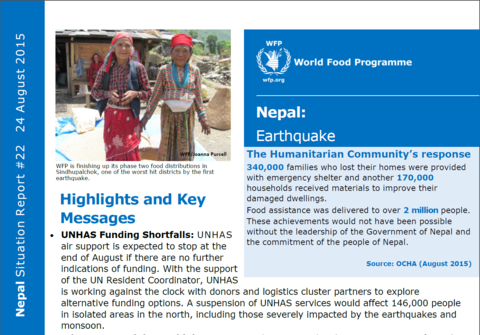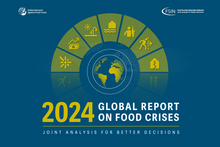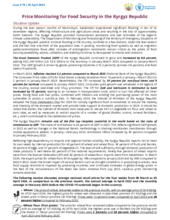
Highlights
- UNHAS Funding Shortfalls: UNHAS air support is expected to stop at the end of August if there are no further indications of funding. With the support of the UN Resident Coordinator, UNHAS is working against the clock with donors and logistics cluster partners to explore alternative funding options. A suspension of UNHAS services would affect 146,000 people in isolated areas in the north, including those severely impacted by the earthquakes and monsoon.
- What WFP Recipients Think: WFP carried out post-distribution monitoring of people reached through food and cash support in phases one and two of the emergency response. For those who received cash, the survey found that people prioritised buying food, rehabilitating the family house, saving and paying for school fees, in that order. For those who received WFP food supplies, nearly all of those interviewed (96 percent) were satisfied with the quality of the food they received. Finally, 85 percent of people interviewed showed full awareness of their food entitlements.
- Focus on Sustainability: Moving into the final phase of the emergency operation, WFP is increasingly concentrating on serving earthquake-affected populations in the most sustainable way. Food and cash support will be given to eligible participants to work on restoring critical community assets, such as trail repair, terrace protection and rehabilitation of schools. WFP cash support provides people with the means to buy the food of their choice, while ensuring that local markets are supported.
- Funding for WFP Earthquake Response: WFP has received contributions from its private sector donors, multilateral donors, Australia, Canada, Denmark, the European Union, Germany, Japan, Liechtenstein, the Netherlands, Norway, Sweden, United Kingdom, United States, and UN CERF.
| Document | File |
|---|---|
| WFP Nepal Earthquake Situation Report #22, 24 August 2015 |
PDF | 948.44 KB
Download
|


